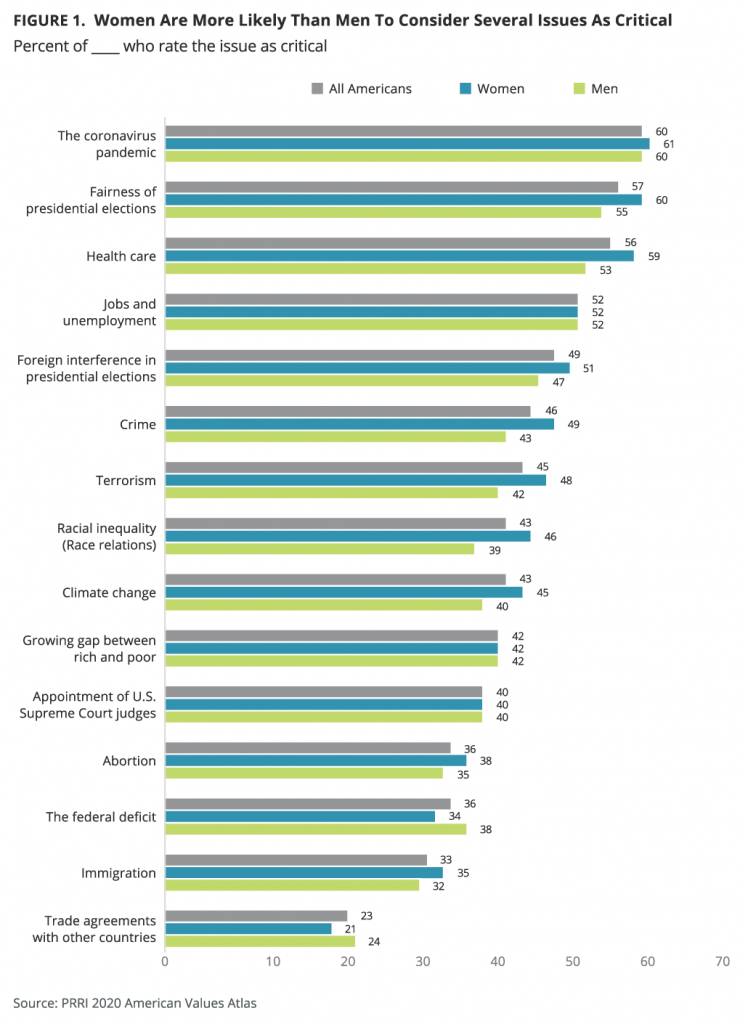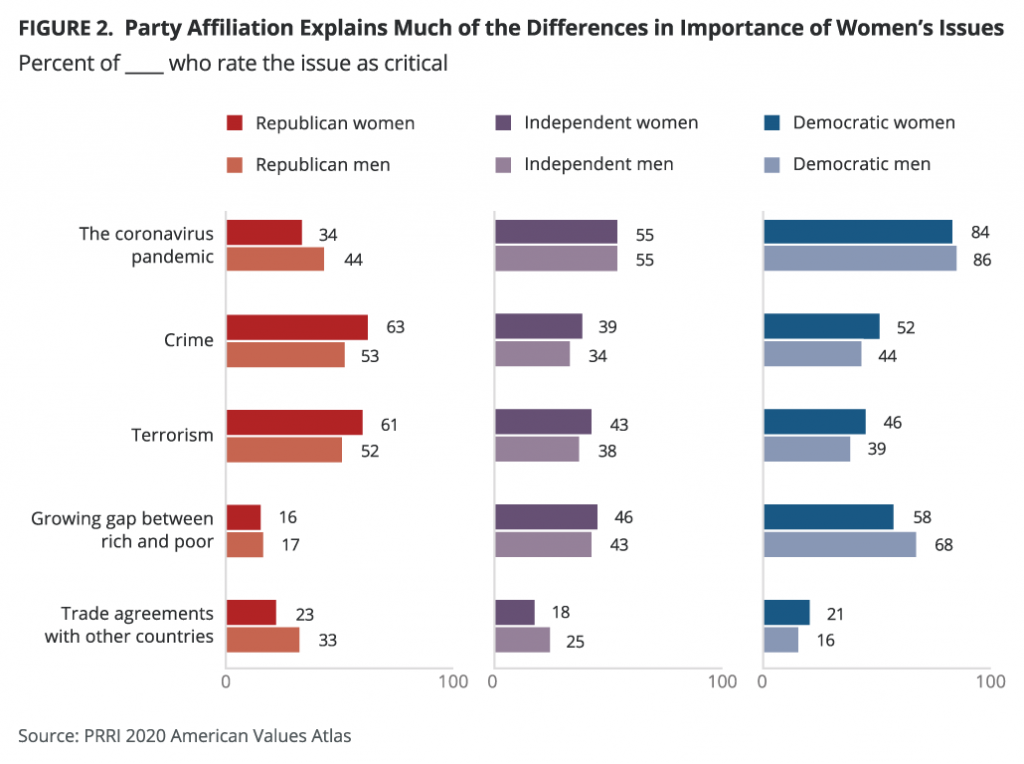Women in America are deeply divided along the lines of party, education, and race and ethnicity in what issues they consider critical to the country. In PRRI’s 2020 American Values Survey, around six in ten women consider the coronavirus pandemic (61%), the fairness of presidential elections (60%), and health care (59%) critical issues. About half of women consider jobs and unemployment (52%), foreign interference in presidential elections (51%), crime (49%), terrorism (48%), racial inequality (46%), and climate change (45%) critical issues. About four in ten or fewer consider the growing gap between rich and poor (42%), the appointment of U.S. Supreme Court judges (40%), abortion (38%), immigration (35%), the federal deficit (34%), and trade agreements with other countries (21%) to be critical.
Women are more likely than men to consider a variety of issues to be critical, including the fairness of presidential elections (60% vs. 55%, respectively), health care (59% vs. 53%), foreign interference in presidential elections (51% vs 47%), crime (49% vs. 43%), terrorism (48% vs. 42%), racial inequality (46% vs. 39%), and climate change (45% vs. 40). Gender differences on other issues are not statistically significant.

However, these differences are mostly attributable to the gap in partisan identification among men and women. Women are more likely than men to be Democrats (36% vs. 29%) and less likely than men to be Republicans (24% vs. 31%). Comparing men and women within partisan groups reveals that there are only small gender differences on a handful of issue priorities. In fact, women only differed significantly from their male partisan counterparts on five of the issues tested, and there were no significant differences between independent women and independent men on any issue.
Among Republicans, women are more likely than men to consider crime (63% vs. 53%, respectively) and terrorism (61% vs. 52%) a critical issue. Republican women are less likely than Republican men to say that the coronavirus pandemic (34% vs. 44%, respectively) or trade agreements with other countries (23% vs. 33%) are critical issues.
Crime is the only issue that both Republican and Democratic women are more likely to consider critical than their male peers. Democratic women are more likely than Democratic men to say crime is a critical issue (52% vs. 44%, respectively), while Democratic women are less likely than Democratic men to rate the growing gap between the rich and poor as a critical issue (58% vs. 68%).

When considering the role of women’s issues in the current political climate, it’s key to note that party affiliation plays a major role. This becomes clearer when looking at the top critical issues for women by party: For Democratic women it is the coronavirus pandemic (84%), health care (74%), and the fairness of presidential elections (69%). For independent women it is health care (59%), fairness of presidential elections (57%), and the coronavirus pandemic (55%). For Republican women it is crime (63%), terrorism (61%), and the fairness of presidential elections (58%).